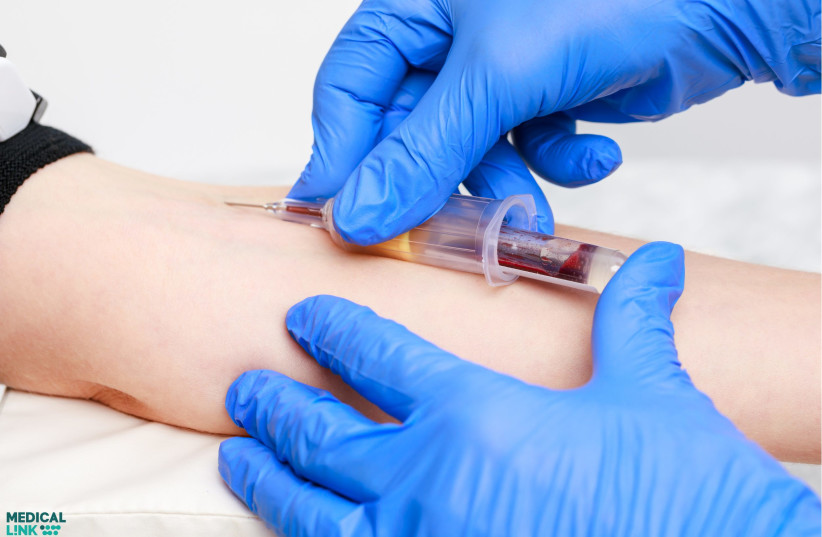A simple blood test developed abroad for the early diagnosis of the most common type of dementia – Alzheimer’s disease (AD) – is now available in Israel.
A biomarker-based diagnosis of AD at an early stage is the beginning of a revolution in the field,” declared neurology Prof. David Tanne, who is president of the Israel Neurological Association and director of the Stroke and Cognition Institute at the Rambam Health Care Campus in Haifa.
The dramatic breakthrough in AD diagnosis will lead to doctors giving patients with a positive result for the disease starting drug treatment or lifestyle changes that could slow down its development. The test reveals amyloid beta that damages the communication between the nerve cells and causes the destruction of the brain tissue. The liquid biopsy, which diagnoses the diseases without an invasive procedure, is called AD-Detect. It is advertised abroad as costing $399 plus a $13 physician service fee. It is not a director-to-consumer test; instead, it must be ordered and overseen by a physician.
The American company Quest Diagnostics which developed and markets the blood test is represented in Israel by the Medical Link company; Tanne serves as a paid consultant to Medical Link. Quest Diagnostics deciphers the blood samples that are sent from Israel on a flight to a lab in California that performs about half a million tests of various types daily.
The tests are available in Israel to people of any age who have a referral from a doctor who, as part of the medical investigation of their cognitive status, referred them for further testing. The cost of an amyloid test is NIS 3,450, with the addition of a tau-protein test, it costs NIS 4,850, and the cost of all three is NIS 5,850. There was no explanation for why the tests are more expensive here.

How was the disease detected in the past?
The reliability has been proven in clinical studies that indicated an accuracy of 89% in identifying the biomarkers of the proteins that characterize AD. Along with this test, another two can be performed to determine the presence of p-tau 181, a protein that also helps identify AD pathology, and the APOE (apolipoprotein E) gene. These two tests are not required for the administration of drugs but are used as supplementary information to assess the presence of the disease.
Until now, AD was detected mainly by a review of the medical history and a cognitive assessment. Biomarker tests using lumbar acupuncture or brain mapping for amyloid deposits already exist, but they are invasive or are not easily available, and the cost to the healthcare system is very high.
According to the estimate of the EMDA (Alzheimer’s Association of Israel), about 150,000 Israeli women and men are currently suffering from AD and other dementias. According to a Health Ministry forecast, by 2050, the number of patients will triple.
The first drug approved to treat AD that is given by infusion into the vein and is effective in the early stage of the disease was approved by the US Food and Drug Administration last July, and another drug is expected to receive approval later this year. At the same time, studies have already linked the adoption of a healthy lifestyle and delaying the onset of symptoms.
A new study published in February in one of the world’s most prestigious medical journals, the New England Journal of Medicine under the title “Biomarker changes during 20 years preceding Alzheimer’s Disease” after two decades of research by scientists in China revealed that biological markers begin about 18 years before the clinical diagnosis. Researchers in Beijing compared 648 people who were eventually diagnosed with AD and an equal number who remained healthy. The beginning of the change in the amyloid proteins in AD patients appeared between 14 and 18 years before the clinical diagnosis. The study illustrated the possibility of performing tests for early diagnosis even before a cognitive decline occurs so patients could adopt a healthy lifestyle and slow down the development of the disease.
